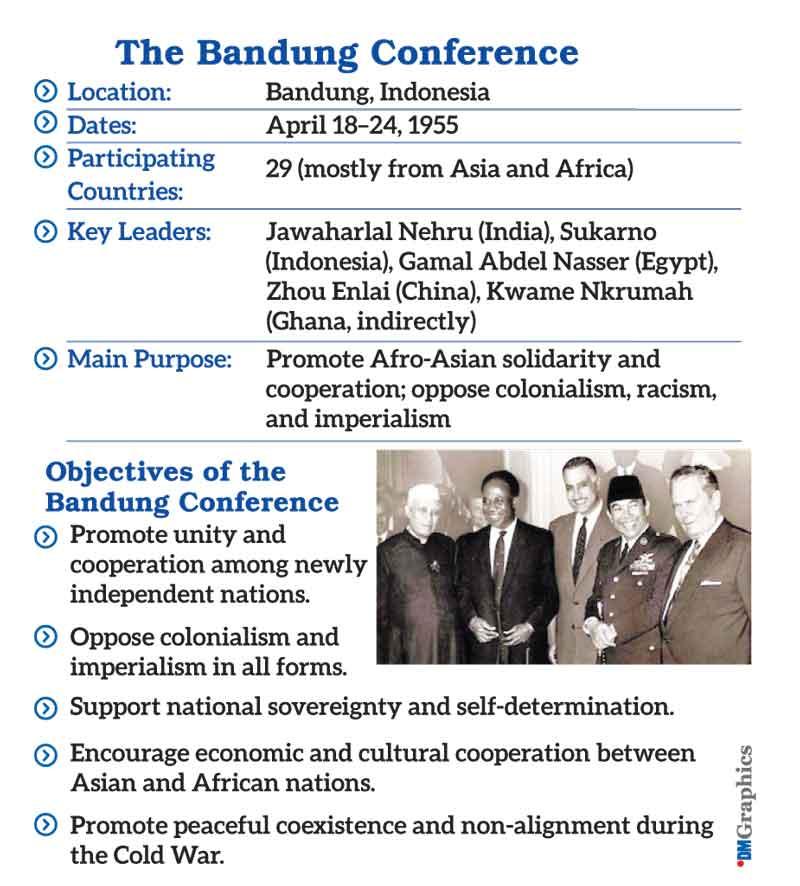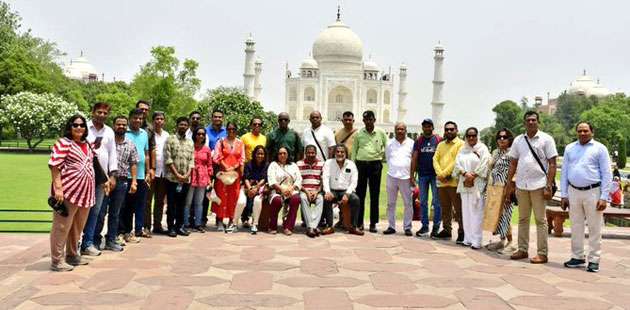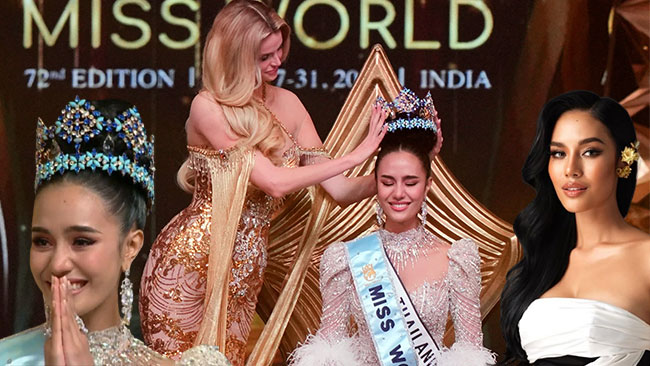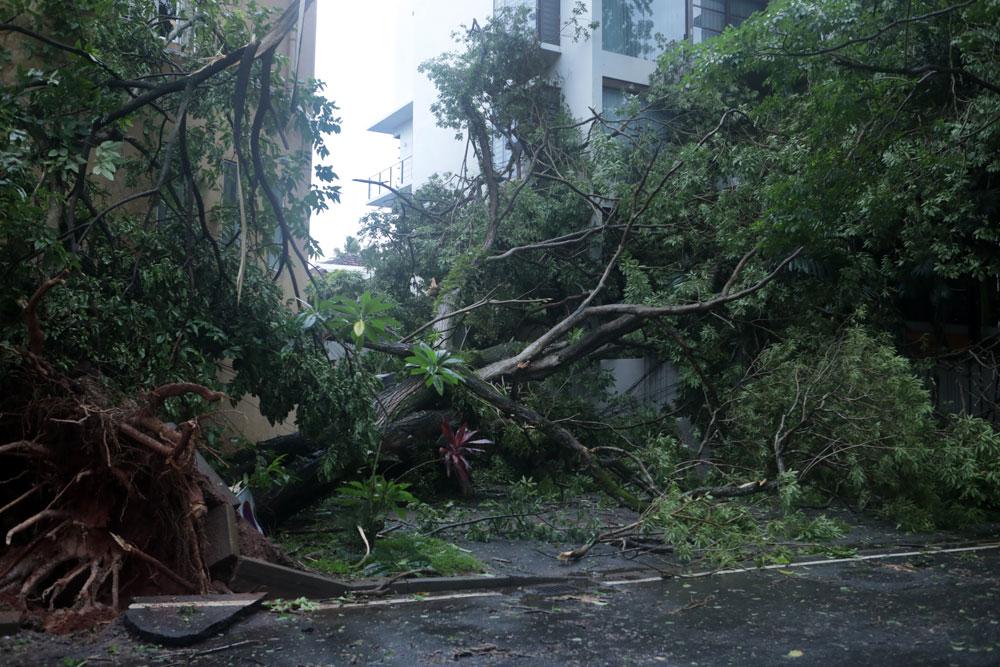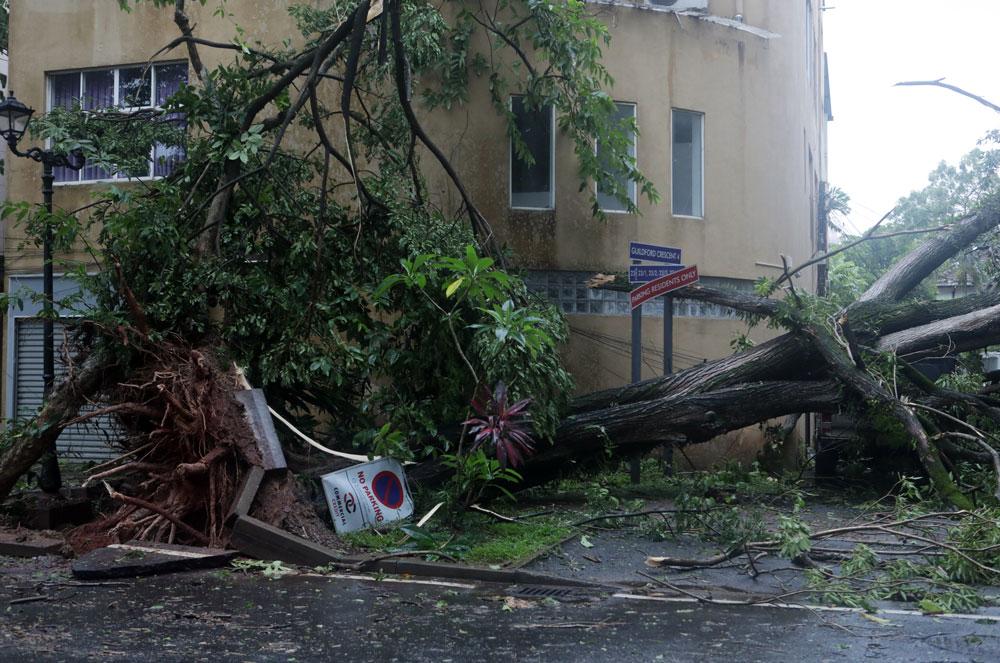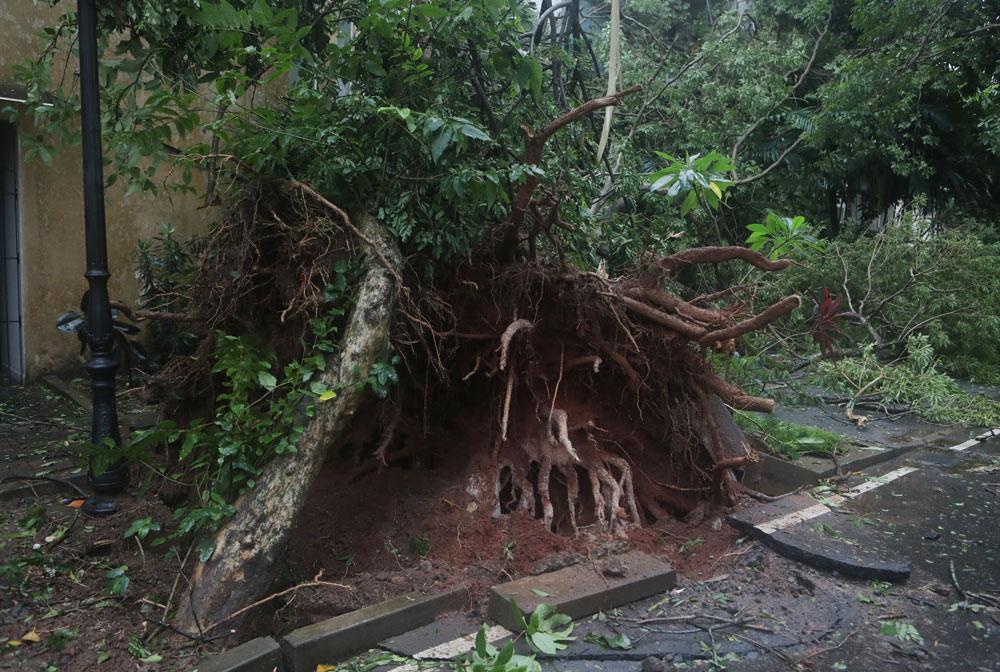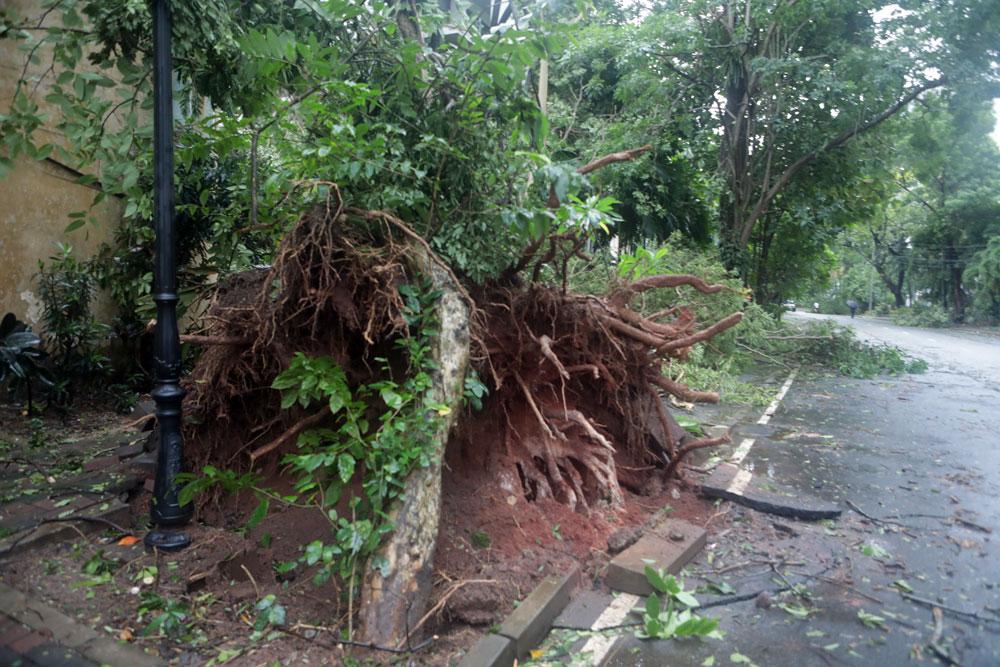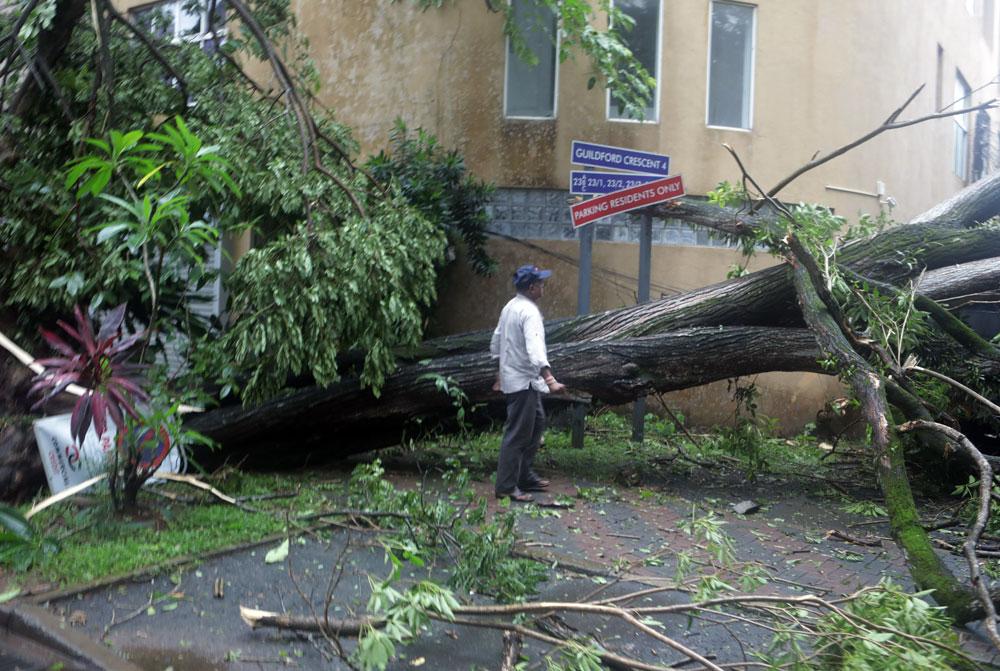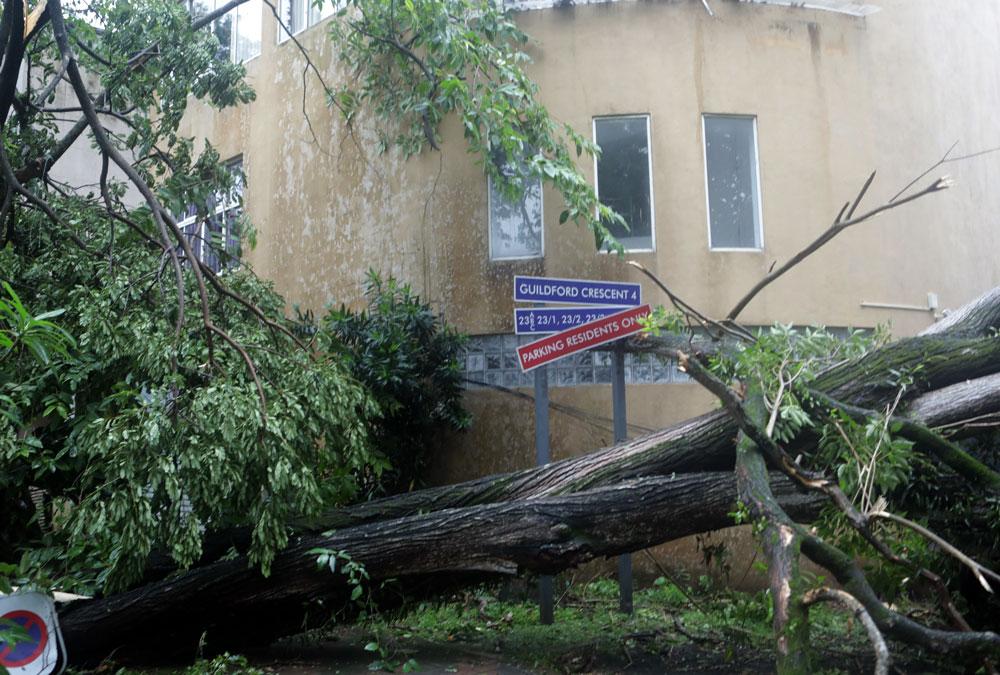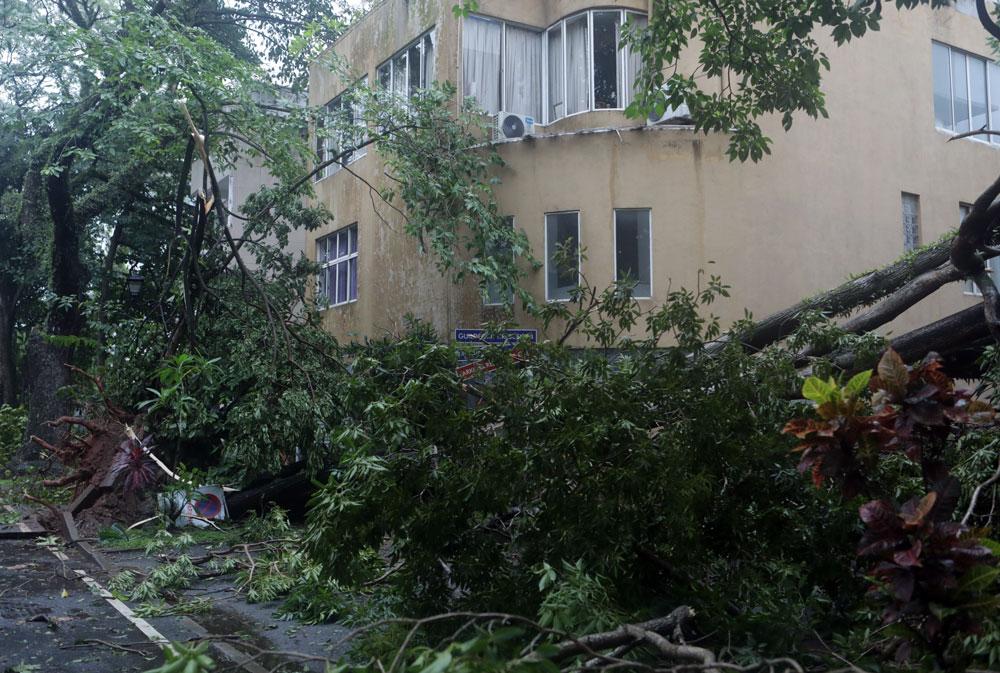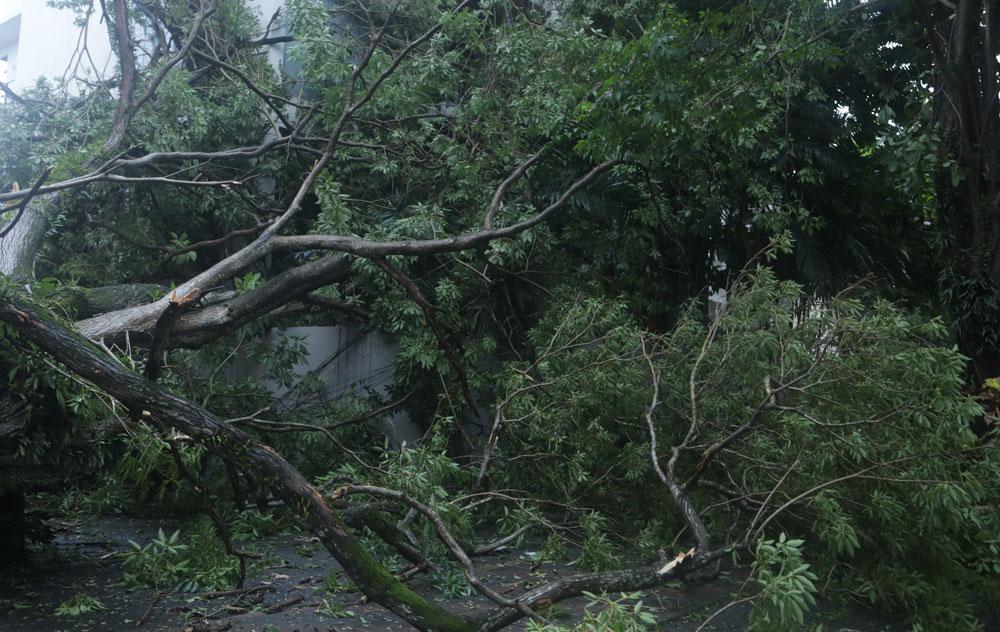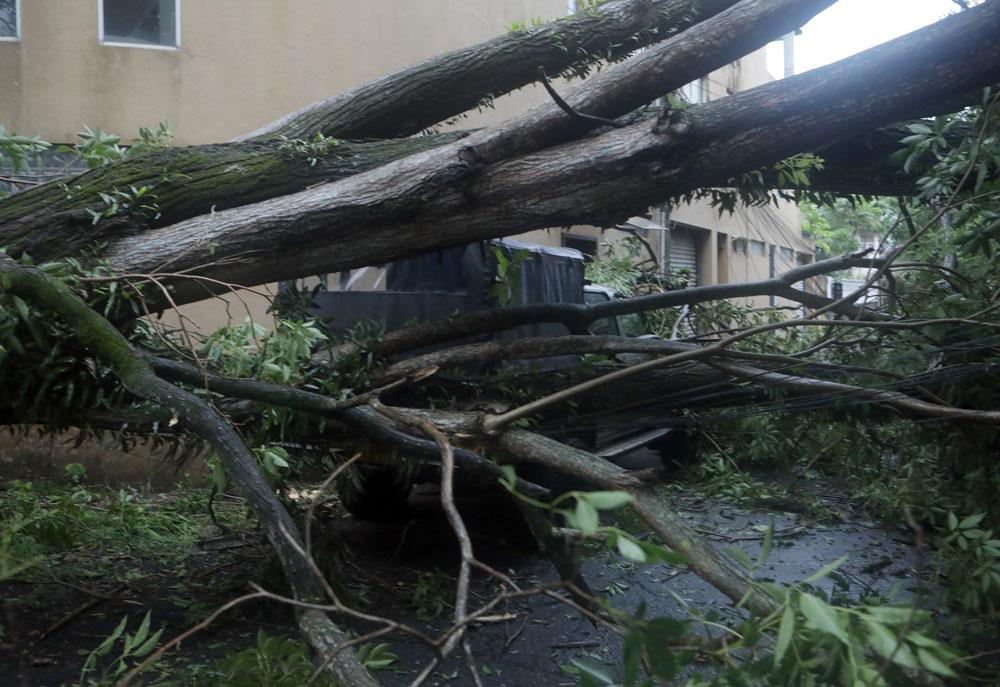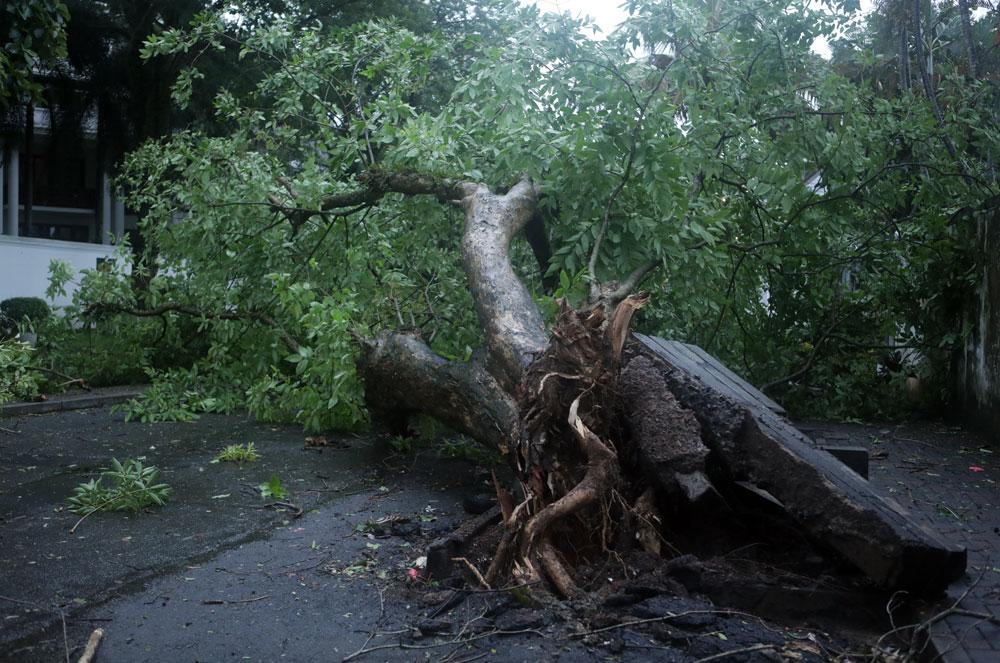Digital Colonialism: A New Way to Enslave South Asia
June 1st, 2025An Analysis by Dr. Darini Rajasingham-Senanayake with Pascal Lottaz at Neutrality Studies
See full interview here: https://www.youtube.com/watch?v=Kkre0dQCJRw
In a recent discussion, Dr. Darini Rajasingham-Senanayake, a social and medical anthropologist with a focus on international development and political economy, provided an in-depth analysis of the current situation in Sri Lanka. She also discussed ongoing crises in South Asia, highlighting the impacts of digital colonialism in regime change operations and the role of international financial institutions like the IMF.
She discusses the recent face-off between nuclear armed India and Pakistan that started during the visit of US Vice President J.D Vance and his Indian Diaspora wife Usha and their children to India, when attacks were staged by Islamist terrorists in Kashmir’s Pahalgam on April 22.
She argues that Sri Lanka’s economic struggles are tied to a broader geopolitical conflict and the New Cold War between the United States and China. This is manifest in the form of hybrid economic proxy war in the South Asia Region. Stating that the geostrategic county’s Eurobond Debt trap is due to the predatory nature of private creditors, she calls for a reevaluation of the country’s debt situation and its foreign policy and flags the need for Odious Debt Cancellation in Global South countries.
The Current State of Sri Lanka
Dr. Rajasingham-Senanayake describes the situation in Sri Lanka as relatively calm, but warns that this calm may be the “calm before the storm.” The country is currently trapped in a cycle of debt, particularly with US dollar and euro bond obligations, which are set to come due in the next few years. This looming financial crisis is compounded by discussions of establishing a US spaceport and maritime security hub in Sri Lanka, given its strategic location in the Indian Ocean.
During the previous Cold War between the US and Soviet Union/ Russia, Sri Lanka had sought to steer a Non-Aligned Foreign Policy, but steering a middle course is increasingly difficult in the current era of Digital Colonialism, cyberwar operations and Debt Data manipulation by interested external and internal parties. National Data Security is a huge concern in a context of Data wipes of the Sri Lanka Government Cloud Storage system. She contends that the geostrategic country is experiencing hybrid economic and cyber operations amid International Financial Law fare.
Geostrategic Importance: Submarine Date Cable Routes in Seas of Sri Lanka
Sri Lanka’s position at the center of Indian Ocean energy, trade and Submarine Data Cable routes makes it a focal point for international interests and three-way competition between the United States, India and China at this time. Almost 50% of global container traffic passes through its waters, leading to increased foreign interest and potential military presence. The country has effectively lost its economic sovereignty and policy autonomy to the International Monetary Fund (IMF) and the Washington consensus following the Staged Default of 2022.
Discussions regarding a Space Port are to be contextualized alongside the Eurobond debt trap as US has always sought to establish military bases in Sri Lanka which is at the Center of the Indian Ocean. US bases have proliferated and already ring both the Eastern Indian Ocean region including the South China Sea and the Western Indian Ocean, including the Persian Gulf
Currently the US and UK have the huge Diego Garcia military base due Southwest of Sri Lanka.
The Regime Change and Its Implications
The regime change in Sri Lanka, which saw the ousting of the Rajapaksa family, was part of a broader pattern of political upheaval in South Asia. Dr. Rajasingham-Senanayake notes that the protests leading to this change and the Staged Default were funded by external entities, including the US Agency for International Development (USAID), National Endowment for Democracy (NED) and the Soros Foundation. The new government, led by President Anura Kumara Dissanayaka continued to pursue policies that align with IMF directives, despite the previous administration’s corruption.
The ruling NPP government led by President Anura Kumara Dissanayaka failed to do Due Diligence and review agreements drafted with Bondholders, other private creditors, the largest being BlackRock, and the IMF by the previous US-backed Ranil Wickramasinghe government that it had accused of corruption.
The Role of External Forces
The discussion highlights the interconnectedness of regional politics, particularly the simultaneous regime change in Pakistan, where Prime Minister Imran Khan was ousted and later imprisoned amid allegations of US involvement. Prime Minister Khan named Donald Lu, then US Under-Secretary for South and Central Asia. Similarly, Bangladesh last year saw a regime change. This pattern suggests a coordinated effort to reshape political landscapes in South Asia, often at the expense of local governance and sovereignty.
India the regional hegemon now appears to have a policy of ‘beggar thy Neightbourhood First” while capitalizing on Over the Horizon regime change operations and militarizing the Indian Ocean which was declared a ‘Zone of Peace’ free of nuclear weapons during the Cold War.
BlackRock and Adani Group which are is close to the regime in Delhi have profited from Sri Lanka’s staged default in 2022. Meanwhile in the wake of staged Islamist Terror attacks in Kashmir’s Pahalgam, India is metering out collective punishment to impoverished farmers in Pakistan by withholding Indus River waters and threatening Pakistan’s food security.
However, as the example of ASEAN in contrast to SAARC shows, no county can develop when its neighbourhood is in crisis and India may be digging its own grave, while trying to profit maximize in South Asia.
Economic Crisis, Donor Darling, and Debt Dynamics
Dr. Rajasingham-Senanayake challenges the narrative that Sri Lanka is bankrupt, arguing that it is one of the wealthiest countries in South Asia by all relevant metrics, including Purchasing Power Parity, GDP per capita, human development, social development. Physical Quality of Life Index, infrastructure, etc. However, Sri Lanka was deemed bankrupt simply because of a purported lack of ‘exorbitantly privileged’ US dollars to buy oil and gas.
Sri Lanka is a lush and fertile tropical island, with extensive fisheries and marine resources, and blessed with Mother Nature’s largess. This includes two monsoons for crop rotation and plentiful harvests, and renewable energy. Arguably, the country suffers from a geostrategic ‘resource curse”. Rather, than being bankrupt, because of its strategic location it has been a Donor Darling” which has generated a culture of Foreign Aid and Experts induced Dutch Disease. The colonial mentality of the political and business elites has ensued a dependent economy without industrialization and diversification of markets.
Stating that the Sovereign Default in 2022 was staged also with a blockade on oil and gas reaching the country in 2022 causing supply chain disruption, queues and scarcities, she questions the adequacy of the US dollar to measure the real Wealth of Nations. Indeed, the status the dollar as the global reserve currency is increasingly challenged by the BRICS countries.
Staged Disaster and Lawfare ‘Make the Economy Scream’
The geostrategic country’s first ever Sovereign Default was CORODINATED and STAGED with international and internal actors and networks, amid distracting Arab-spring style, Aragalaya protests and regime change. The shadowy off-shore Hamilton Reserve Bank’s court case in New York and coordinated Rating Agency downgrades of the Sri Lanka rupee leading to rapid depreciation were part of a pattern of International Financial Lawfare.
A series of Staged disasters to Make the Economy Scream”, including Islamic State (ISIS), claimed terror attacks on Tourist Hotels and Churches to damage economy and society in 2019, followed by two years of WHO-sanctioned economically devastating Coivd-19 Lockdowns caused the county which had been listed as upper Middle Income Country (MIC) by the World Bank in 2019 to borrow from Predatory Private Creditors when the disasters occurred and Default in 2022.
Pumping and Dumping Countries into and out of Poverty: Economic Shocks, Data and Indices manipulation
The World Bank’s Upper MIC listing meant that Sri Lanka could not access concessionary borrowings that are available to Less Developed Countries. Rather, it was forced to borrow from private creditors at predatory interest rates when the disasters struck. This caused an Odious debt pile up.
The crisis is largely due to the predatory practices of private creditors which constitute the Supply-side of Odious Debt” and the IMF’s restructuring practices, which prioritize payments to these creditors over the needs of the Sri Lankan people.
The IMF’s Role: Mission Creep turns Illiquidity into Insolvency
A liquidity crisis was turned into insolvency as the IMF does not recognize the difference between illiquidity and insolvency. Meanwhile, the IMF’s EFF and mission and mandate creep into Domestic Debt Restructure has enabled turning an illiquidity crisis into a insolvency as part of a wider disinformation game and psychological operation to claim that the country is ‘Bankrupt” an There is NO alternative to the IMF.
Moreover, the IMF’s involvement and mission and mandate creep into Domestic Debt Restructure and appropriation of retirement funds to pay bond holders, while claiming to rescue local banks has been criticized as a mechanism that reinforces colonial structures rather than alleviating economic distress. So too the privatization of the Central Bank, the austerity measures, high taxation and sell off of strategic infrastructure would shrink the economy and retard growth.
Dr. Pascal Lottaz likened the situation to a drug addiction, where Sri Lanka is compelled to seek more US dollars from the Predatory Hedge Funds (the largest being BlackRock), private creditors and International Sovereign Bondholders (ISB) to pay off existing ISB debts, perpetuating a cycle of dependency and economic hardship.
The IMF overseen ISB debt restructure seems like a corruption racket also given the beneficiary bondholders names are secret.
The Need for Alternative Solutions
The discussion raises critical questions about the future of Sri Lanka’s economic policy and the need for reform of the international financial system and IMF, as well as the need to De-dollarize to de-colonize. There are after all 56 other Global South countries in Eurobond debt traps and the IMF’s bailout business.
Dr. Rajasingham-Senanayake suggests that the country should explore alternatives to the IMF, such as engaging with China for currency swaps or seeking support from the BRICS nations and the New Development Bank. However, she notes that Sri Lanka’s historical ties to the West and colonial mentality may hinder such initiatives.
Meanwhile, Sri Lanka must look East and diversify its markets and products, especially industrialize its fisheries and Rare Earth Minerals Sector including Graphite, Titanium and Zircon.
The Geopolitical Landscape
The geopolitical dynamics in South Asia are complex, with India, China, and the US vying for influence. Dr. Rajasingham-Senanayake warns that Sri Lanka’s attempts to maintain a neutral stance may be undermined by external pressures, particularly from the West, which has a history of intervening in the region.
There is an ongoing power and wealth shift from the Global North to the Global South; from the West to the East, and the current hybrid economic proxy wars which are part of the new Cold War waged by the US on China are causing the current turbulence in South Asia.
Conclusion
In an era of Digital Colonialism and cyberwar operations, Sri Lanka’s Debt Data manipulation by interested parties and Data Security is a huge concern in a context of Data wipes and manipulation of the Sri Lanka Government Cloud Storage system at this time.
Dr. Darini Rajasingham-Senanayake’s analysis of Sri Lanka’s current crisis underscores the intricate interplay of local politics, international finance, and geopolitical strategy. As the country navigates these challenges, the need for a reevaluation of its foreign policy and economic strategies becomes increasingly urgent. The discussion serves as a reminder of the broader implications of digital colonialism, through the Digital Economy and Surveillance for Full Spectrum Dominance of countries and populations and the importance of sovereignty in the face of external pressure.
See full interview here: https://www.youtube.com/watch?v=Kkre0dQCJRw

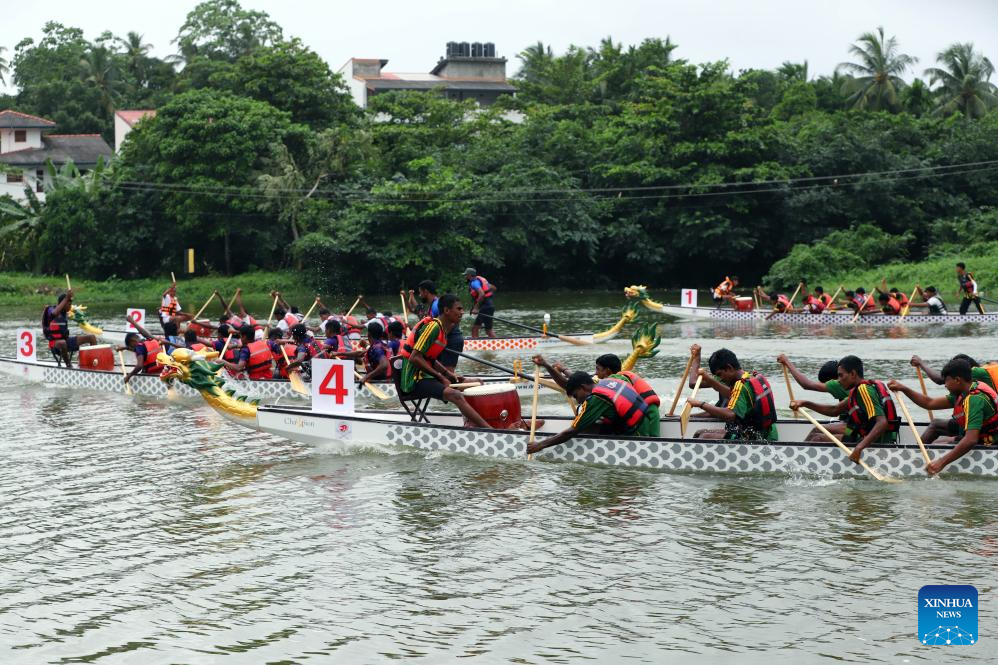

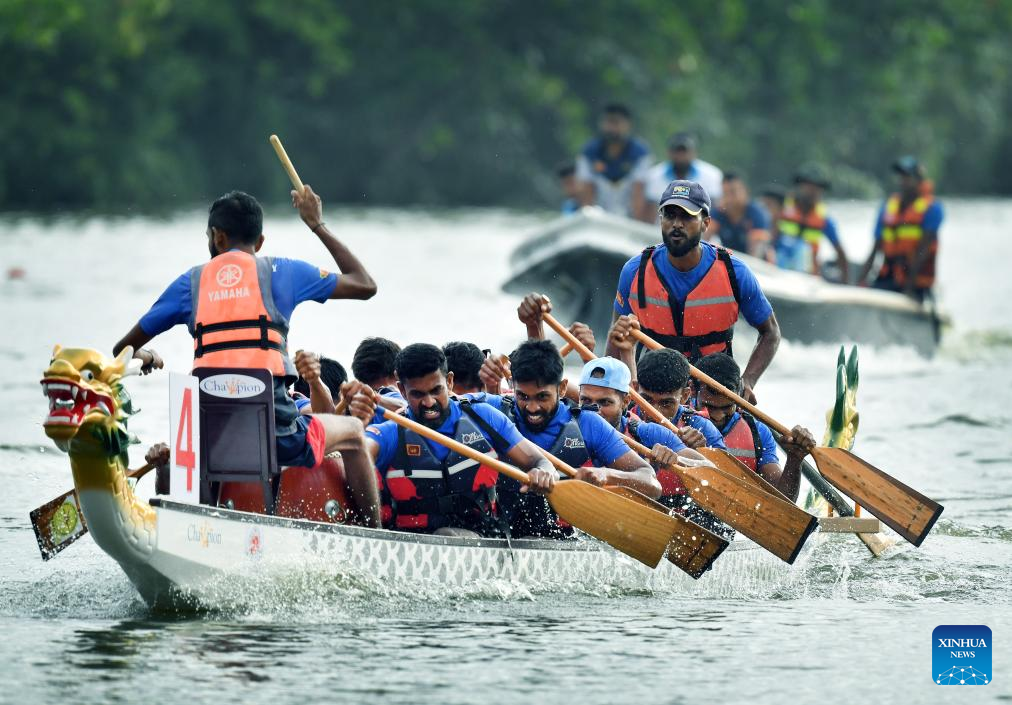

 The 1955 Bandung Conference was a key moment when newly free countries met to decide their path in a divided world. The then Ceylon’s Prime Minister Sir John Kotelawala deserves credit for defending small nation rights against big power attitudes. The Bandung idea actually came from Sir John’s 1954 Colombo Conference. Yet, when the bigger meeting happened in Indonesia, he was expected to follow India’s lead instead of speaking for his own country.
The 1955 Bandung Conference was a key moment when newly free countries met to decide their path in a divided world. The then Ceylon’s Prime Minister Sir John Kotelawala deserves credit for defending small nation rights against big power attitudes. The Bandung idea actually came from Sir John’s 1954 Colombo Conference. Yet, when the bigger meeting happened in Indonesia, he was expected to follow India’s lead instead of speaking for his own country.